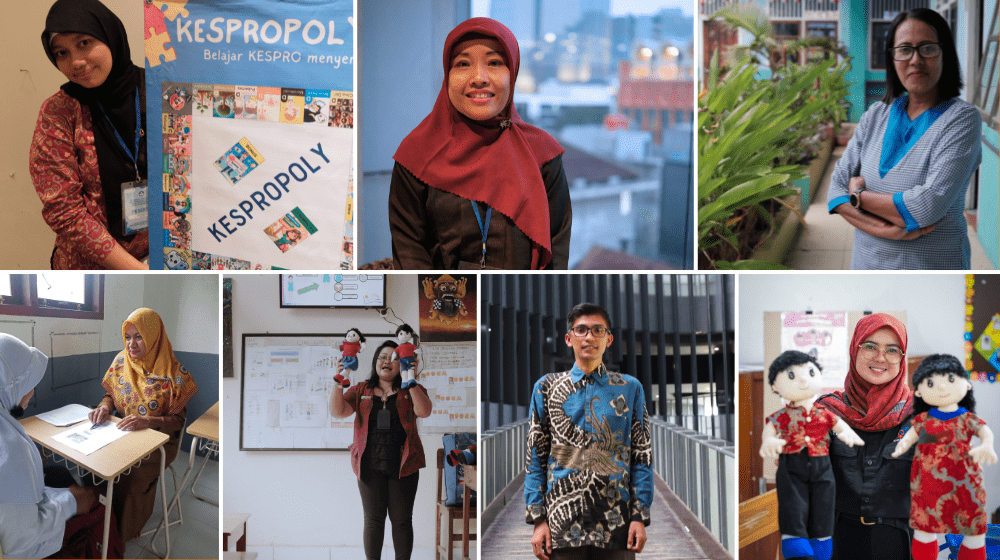World’s Teacher Day is celebrated annually on 5 October to celebrate the remarkable work of teachers all around the world. Teaching is a challenging job that requires not just skills, but also dedication and compassion.
Teaching reproductive health to adolescent students takes special skills, creativity, dedication, and compassion. These seven extraordinary teachers in Indonesia are living proof that compassionate education can transform lives. They have committed themselves to empowering Junior High School and Special Needs School students through Adolescent Reproductive Health (ARH) education, guiding them to better understand their bodies and protect their rights.
All of the teachers featured in this story have participated in a series of training provided by the Ministry of Education, Culture, Research and Technology and the Ministry of Health, facilitated by UNFPA with support from Global Affairs Canada through the Better Reproductive Health and Rights for All in Indonesia (BERANI) programme. Providing education on the emotional, physical, and social aspects of reproductive health to adolescents is a core component of this teacher’s training programme, which aims to enhance teachers’ skills to integrate reproductive health education into their teaching materials.
The following collection of stories celebrates the journey of the teachers in overcoming resistance, engaging parents, and building the community’s trust on Adolescent Reproductive Health education.
Nurlinawati: Innovation that Makes a Difference
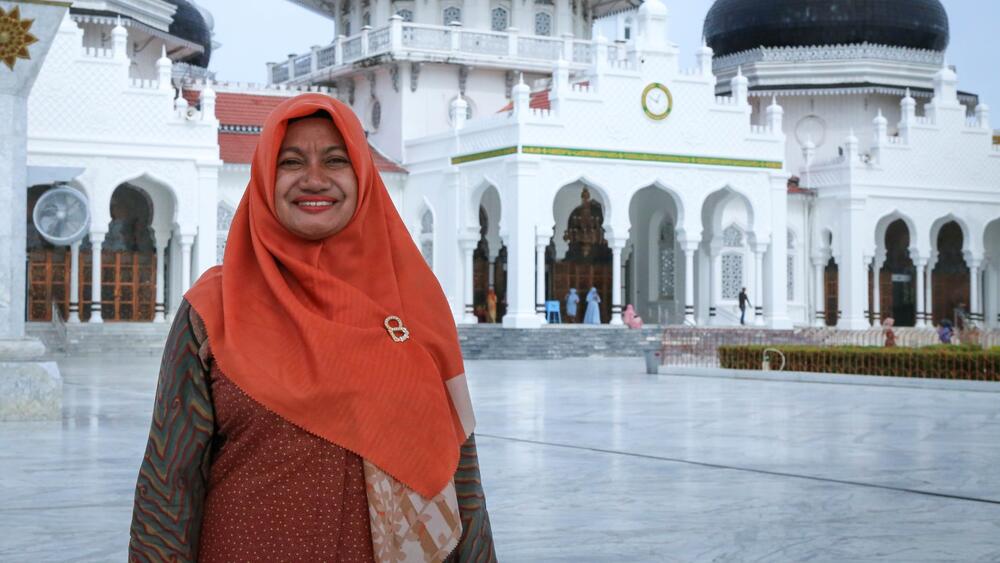
Nurlinawati, also known as Lina, a 44-year-old former banker, never imagined her true calling would be in education. After witnessing the dedication of special needs teachers in her community, she was inspired to shift her career and pursue a new passion—teaching children with intellectual disabilities. Despite her background in economics, Lina invested in her future by attending numerous training programs and eventually earning degrees in special needs education.
Lina found the teacher training on Adolescent Reproductive Health education enlightening. “Initially I was not sure what reproductive health actually entails… I finally learned that the scope is broad. It covers personal hygiene, puberty, protecting yourself, gender equality, and many more,” Lina said. She embraced the challenges, understanding the importance of empowering her students with the information necessary to protect themselves and navigate the world confidently.
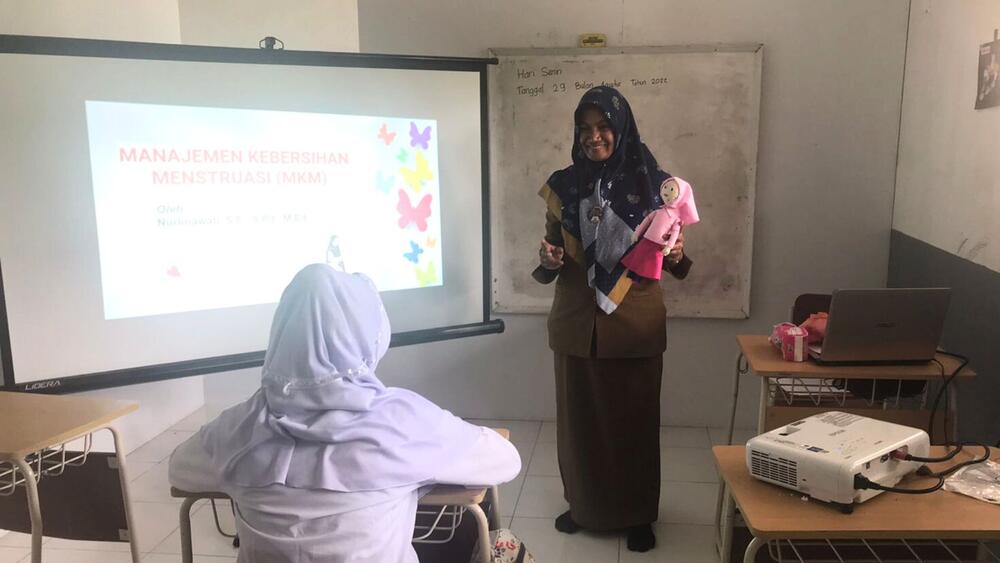
“Providing such learning will improve their capacity not only for the time being, and not only for their family, but also for their own future,”
Driven by passion to make a difference, Lina's success stems from her innovative teaching methods. Inspired by the training, she created the "Cuda" (meaning “Sister” in the Acehnese language) doll to teach her students how to manage menstruation with dignity. Her students, once shy and unsure, now openly discuss their health and are capable of handling their hygiene independently. “Students with intellectual disabilities have the same rights as us. There is no difference, be it access to education, the right to reproductive health education… the right to marry, or other rights. They’re the same,” Lina said firmly. “Providing such learning will improve their capacity not only for the time being, and not only for their family, but also for their own future,” she concluded.
Win Jeroh Miko: Discovering True Calling in Special Needs education
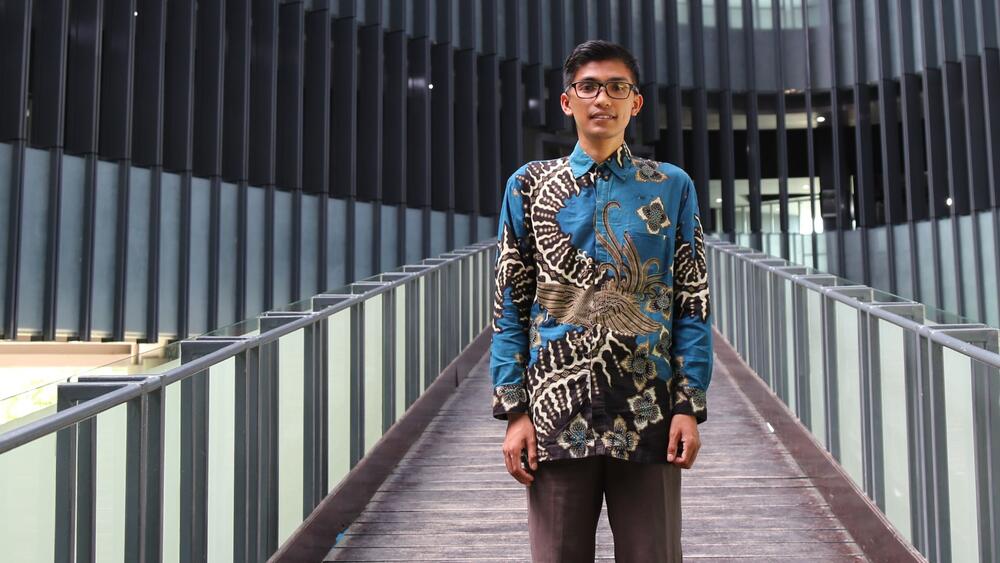
"We need collaboration with parents, schools, the society, and the surrounding community in order to fully realize the rights of our students,”
After graduating with a degree in English, Win Jeroh Miko had two options: teaching at a vocational high school or a special needs school; he chose the latter. Win finally got another degree in special needs education, like Lina, and felt like he found his life’s calling. “My purpose is to teach children with special needs so that they can be independent.”
Win believes that Adolescent Reproductive Health education is paramount for his students. Win was initially met with resistance from both students and parents when discussing Adolescent Reproductive Health topics such as sexual harassment, HIV and sexually transmitted infections (STIs), unintended pregnancy, menstruation and gender-based violence. Eventually, his persistence and commitment paid off. He continued to build trust and break down barriers, ensuring that his students could understand and protect their bodies: “After teaching materials about puberty, my students started to open up about the issues they faced. Additionally, they started to care and be responsible for their reproductive health… We need collaboration with parents, schools, the society, and the surrounding community in order to fully realize the rights of our students,” Win affirmed.
Today, Win uses role-playing and visual aids in his classroom to teach reproductive health in an inclusive and sensitive manner. His efforts have transformed not only his students' understanding but also the attitudes of their families. Win's achievements were recognized when he was awarded as an Outstanding Teacher by the Aceh Provincial Office of Education. He remains committed to ensuring that students with intellectual disabilities have access to the education they deserve.
Siti Muflihah: Making Reproductive Health Education Fun
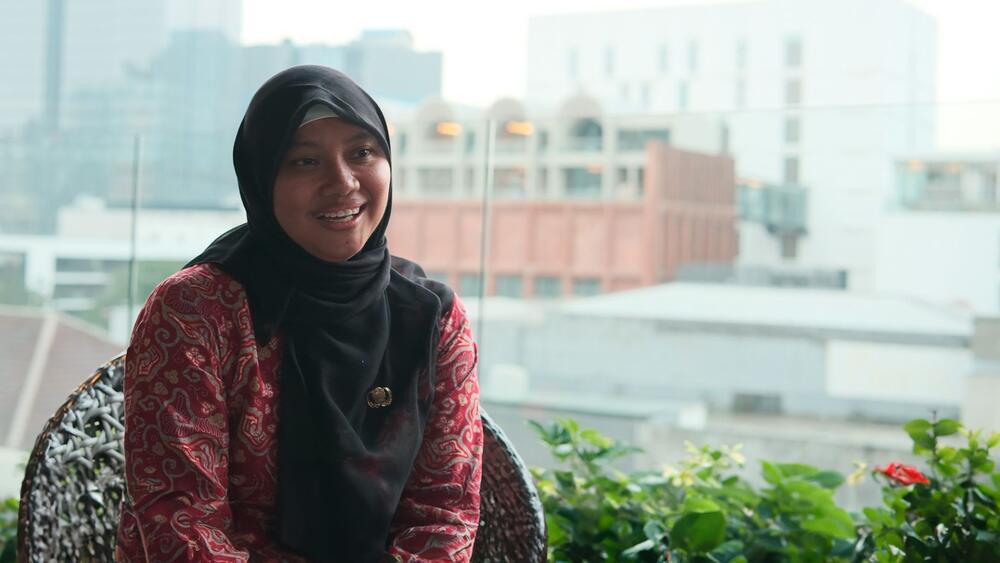
In the heart of Bogor, West Java, Siti Muflihah, a dedicated teacher at the State Junior High School (SMPN) 2 Kemang, is revolutionizing the conversation around Adolescent Reproductive Health. What began as a role as the school's Health Unit (UKS) teacher, transformed into a passion project when Siti saw a critical gap in health education. Partnering with the local health center, she became a certified reproductive health educator, driven to empower her students with essential knowledge and unwavering support.
Siti's approach is anything but conventional. She has replaced awkward lectures with innovative teaching methods, incorporating games like Monopoly and Snakes and Ladders to address sensitive topics like sexual and reproductive health. "Games create a comfortable environment where students can learn and discuss important issues without feeling embarrassed," Siti explains.
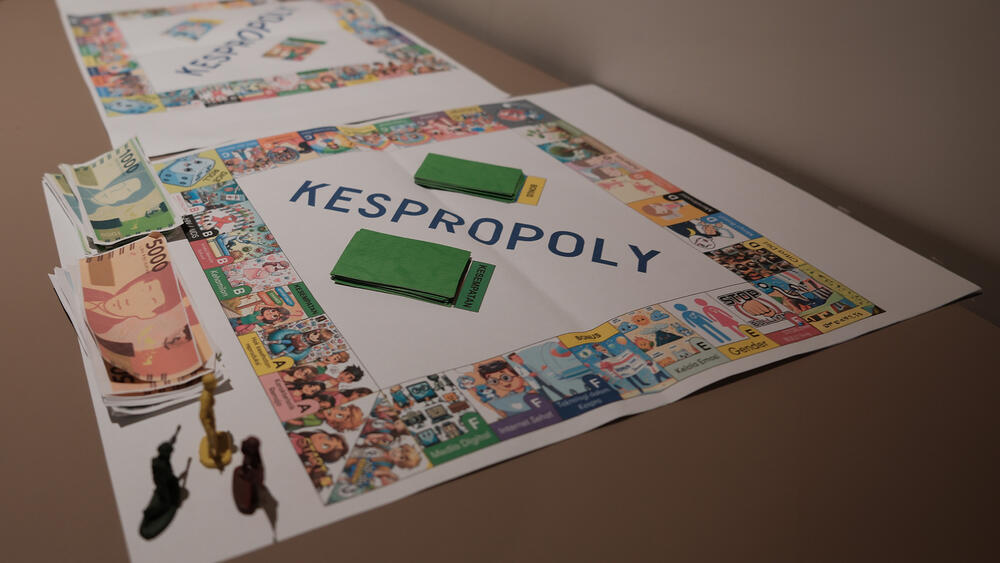
"I've been told it's a subject we shouldn't discuss, but I believe these conversations are vital,"
Her journey, however, has been filled with challenges. One particularly poignant case involved a bright student who had endured relentless bullying throughout elementary school. Siti noticed one student's frequent absences were due to bullying. Recognizing the impact on the girl's self-esteem, Siti offered support and encouragement. By eighth grade, she started to thrive and even took on a leadership role in her classroom.
Siti's commitment to her students has occasionally been met with resistance. Some colleagues deem reproductive health discussions taboo. "I've been told it's a subject we shouldn't discuss, but I believe these conversations are vital," she asserts. Siti passionately advocates for comprehensive education that extends beyond the biology of reproduction, encompassing crucial aspects like values, respect, and emotional well-being.
Looking ahead, Siti envisions a future where educators, parents, and health officials collaborate to ensure all adolescents receive comprehensive reproductive health education.
Reni Gusnaeni: Teaching about Puberty through Inclusive Approaches
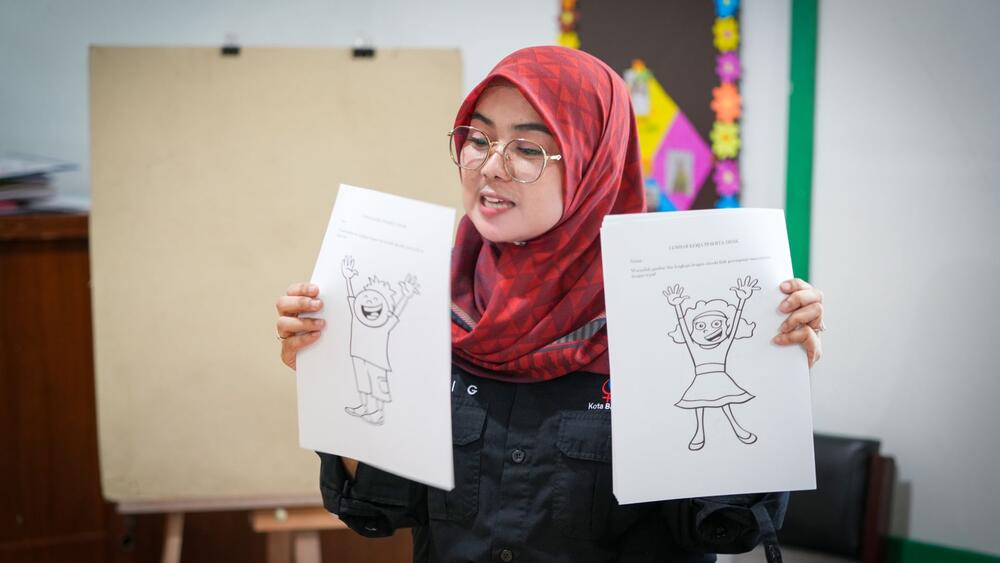
Reni Gusnaeni, a dedicated teacher at SLB-C Plus Asih Manunggal, a special needs school in Bandung, has found a unique way to engage her students in learning about sexual and reproductive health. She uses music to make difficult topics more accessible. As the students sing about their changing bodies and the emotions that come with puberty, they perform empowering gestures, reinforcing the importance of self-awareness and personal boundaries.
“Now they can say no to people who want to touch them,”
Teaching sexual health and puberty to students with intellectual disabilities can be a daunting task, especially in cultures where many consider sex-related subjects to be taboo. But Reni is motivated by a deep desire to help her students understand and protect their bodies. Various tools like anatomically correct dolls and tactile books help Reni to describe human bodies, hygiene, and personal space. Those tools, she says, have helped the 27 students at SLB-C Plus Asih Manunggal, a private special needs school in Bandung, set bodily boundaries and become more assertive in guarding them: “Now they can say no to people who want to touch them,” Ms Gusnaeni says. “They are also more confident to set their private space, for example, when they go to the bathroom.”
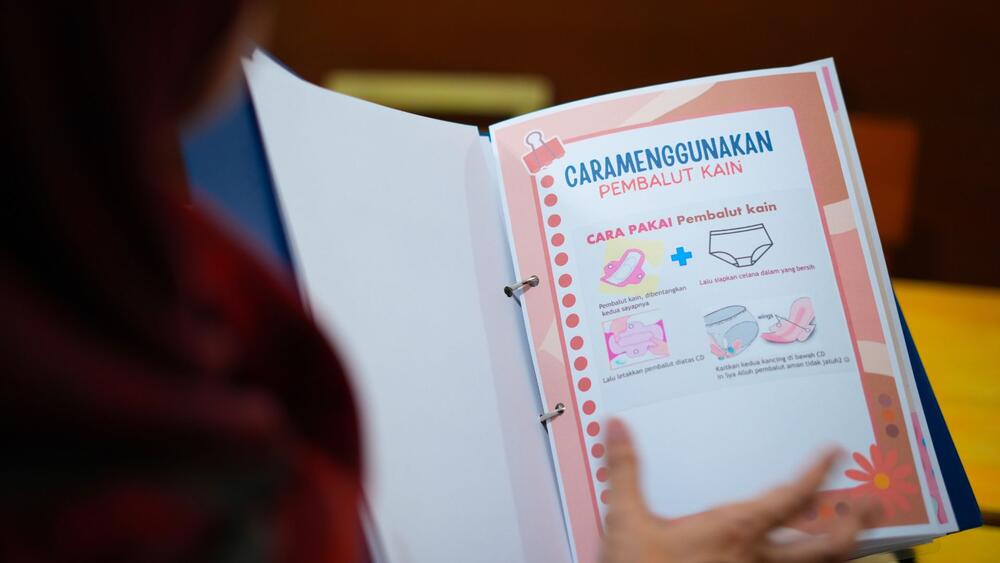
Now Reni is a master teacher, sharing her experience and knowledge with her peers across West Java at 20 different schools. By giving her students the tools to protect themselves, she is contributing to a safer and more knowledgeable generation, ensuring that reproductive health education reaches students with disabilities nationwide.
Lufia Krismiyanti: A Science Teacher Championing Adolescent Reproductive Health Education in Brebes
"I feel I have a moral responsibility to convey more to the children, to help them be healthy physically, mentally, and socially."
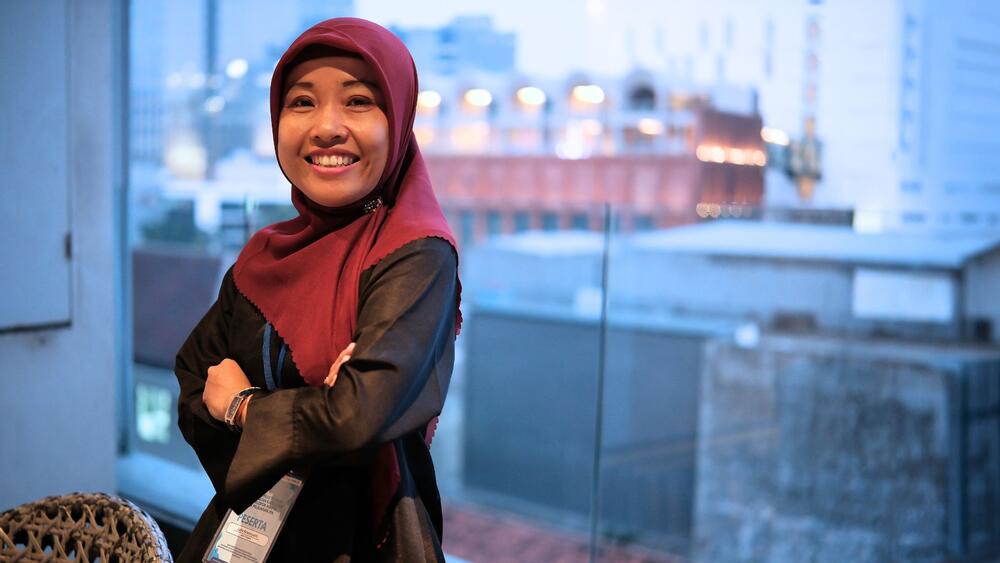
Lufia Krismiyanti, a science teacher at SMP Negeri 1 Brebes, Central Java, is breaking new ground. While her background is in teaching biology and physics, she recognized a crucial need for adolescent reproductive health education among her students. "Initially, I only taught science," she explains, "but then I learned how to incorporate reproductive health material into the science curriculum."
This realization sparked a passion in Lufia. "It's a new science, and very beneficial for the children," she says. "I feel I have a moral responsibility to convey more to the children, to help them be healthy physically, mentally, and socially." She believes that by integrating this essential knowledge into her science lessons, she can empower her students to make informed decisions about their bodies and their futures.
Lufia's commitment to her students' well-being extends beyond the classroom. She has created a named “SIPKROS” which stands for Sistem Informasi Pengaduan Kesehatan Reproduksi Siswa or Student Reproductive Health Reporting System in English, an innovative mobile app and reporting system for reproductive health concerns. This student-friendly application provides a confidential platform for young people to report issues, seek advice, and access information related to adolescent reproductive health.
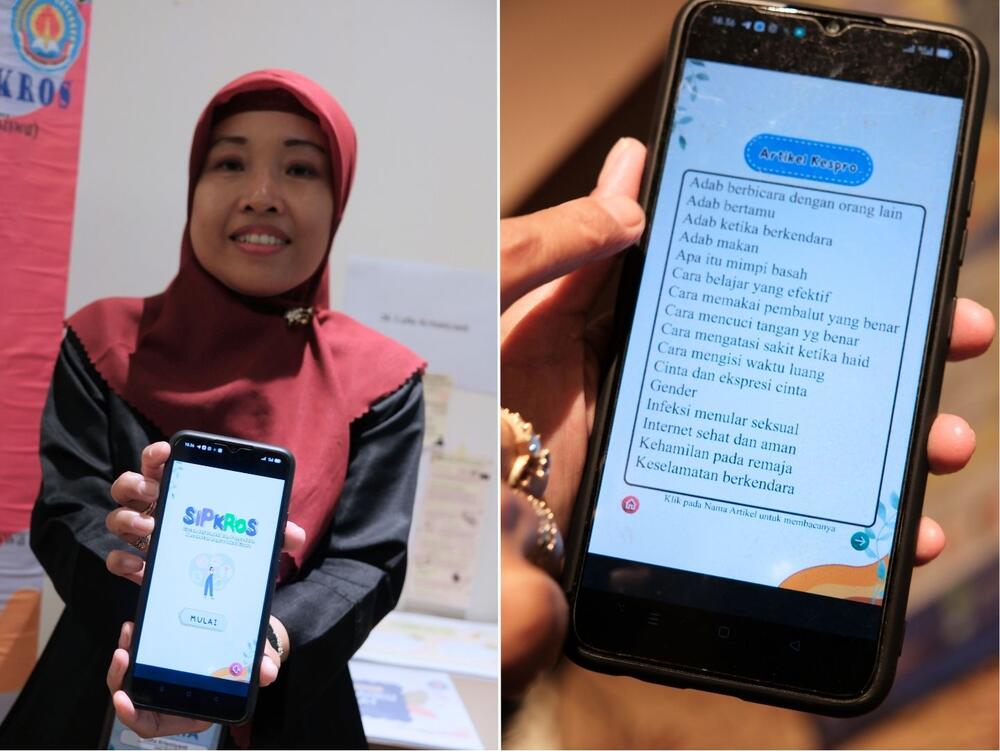
Her dedication has transformed her approach to teaching. "I've become more patient, I smile more, I listen more," she shares. Lufia's journey from science teacher to advocate for adolescent reproductive health education is an inspiring example of how educators can go above and beyond to meet the evolving needs of their students.
Desak Caturwangi: Meeting the Unique Needs of Students with Disabilities Through Reproductive Health Education
"It's even more crucial for young people with disabilities, to understand and care for their bodies, and to protect themselves from sexual abuse."
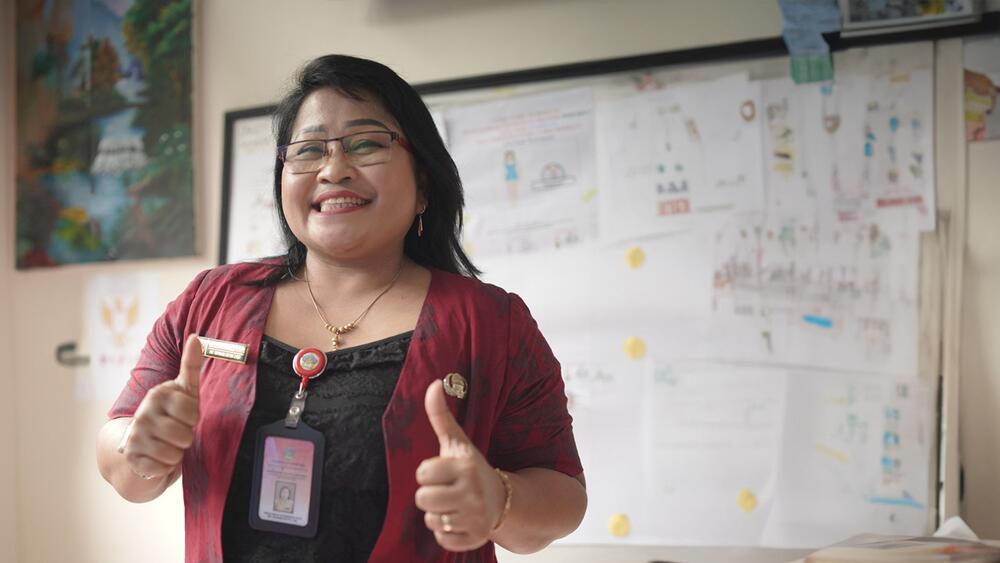
Desak Caturwangi is not your average teacher. For 15 years, she has dedicated herself to students with special needs at the State Special Needs School (SLBN) 1 Bangli in Bali, Indonesia. "For me, teaching students with disabilities isn't just a profession, it's a calling, a deep sense of care for them," Desak shares. But Desak goes beyond academics, recognizing the unique challenges her adolescent students face. She champions reproductive health education, understanding its critical role in empowering them.
"Everyone deserves quality education, including reproductive health education," Desak explains. "It's even more crucial for young people with disabilities, to understand and care for their bodies, and to protect themselves from sexual abuse."
Desak's approach is innovative and compassionate. She uses creative tools like dolls, pictures, and animated videos to make learning engaging and accessible. To teach some topics like menstruation or puberty, she utilizes role-playing, having students act out parent-child scenarios, fostering open communication.
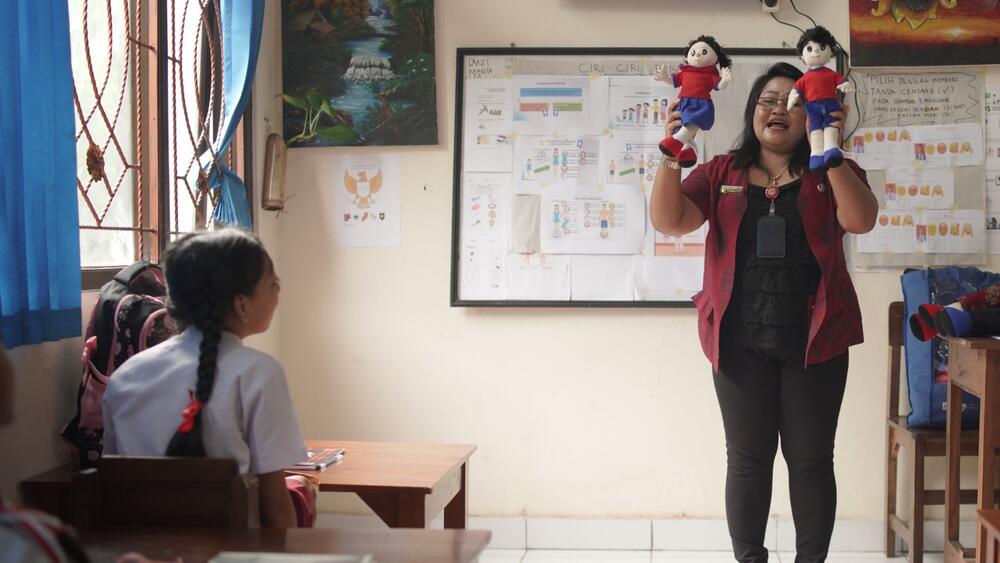
Her efforts extend beyond the classroom. Desak actively shares her knowledge and experience with fellow educators, advocating for greater awareness and understanding of this often-overlooked aspect of special needs education.
Desak's dedication has not gone unnoticed. She has received numerous awards for her contributions to inclusive education, including the "Outstanding and Dedicated Teacher of Special Education" award from the Governor of Bali. One of her proudest moments? A parent expressing gratitude for helping their child learn to use sanitary pads independently. For Desak, these are the victories that truly matter.
Yuliama Yolanda: Championing Reproductive Health and Protecting Students from Violence
𝗧𝗿𝗶𝗴𝗴𝗲𝗿 𝗪𝗮𝗿𝗻𝗶𝗻𝗴
“My mindset changed after joining the training series. Now I believe that talking openly about reproductive health, particularly the prevention of sexual violence, is very important,”
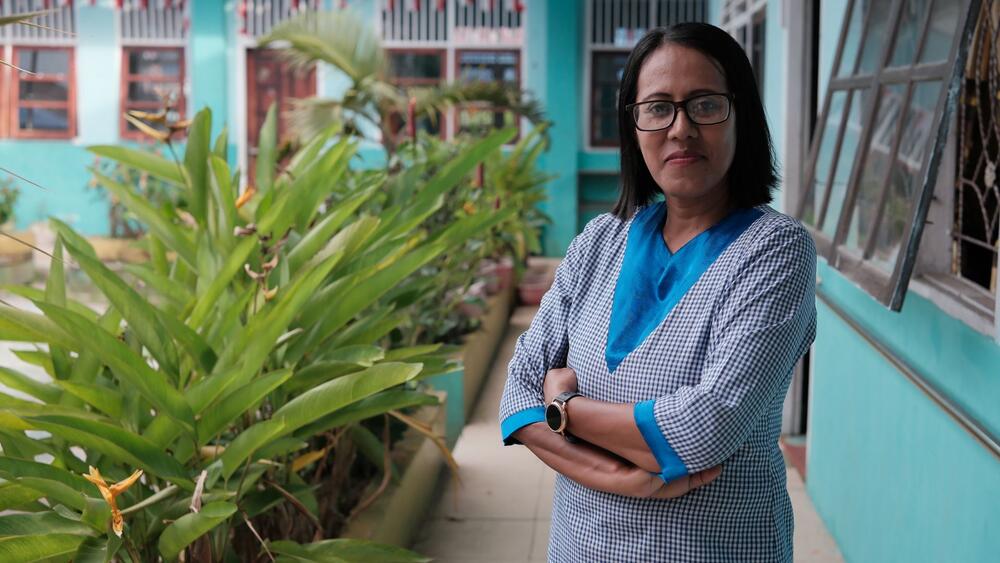
Yuliana Yolanda Luhulima never imagined that she would become a pioneer in teaching about Adolescent Reproductive Health, let alone for students with special needs. Yuliana was reluctant to start conversations about sexual and reproductive health. “My mindset changed after joining the training series. Now I believe that talking openly about reproductive health, particularly the prevention of sexual violence, is very important,” said Yuliana.
A global study from UNFPA reveals that girls with disabilities face up to 10 times more gender-based violence than those without disabilities, and particularly vulnerable to sexual violence. Yuliana understood this vulnerability like her own student was a survivor of sexual violence: “My student was forced into having sex by an older man she met through social media. The next day, she was left alone under a bridge and found by the locals.” Yuliana accompanied her student and the family from one trial to another, working closely with the law enforcement officials until the perpetrator was charged guilty for sexual violence.
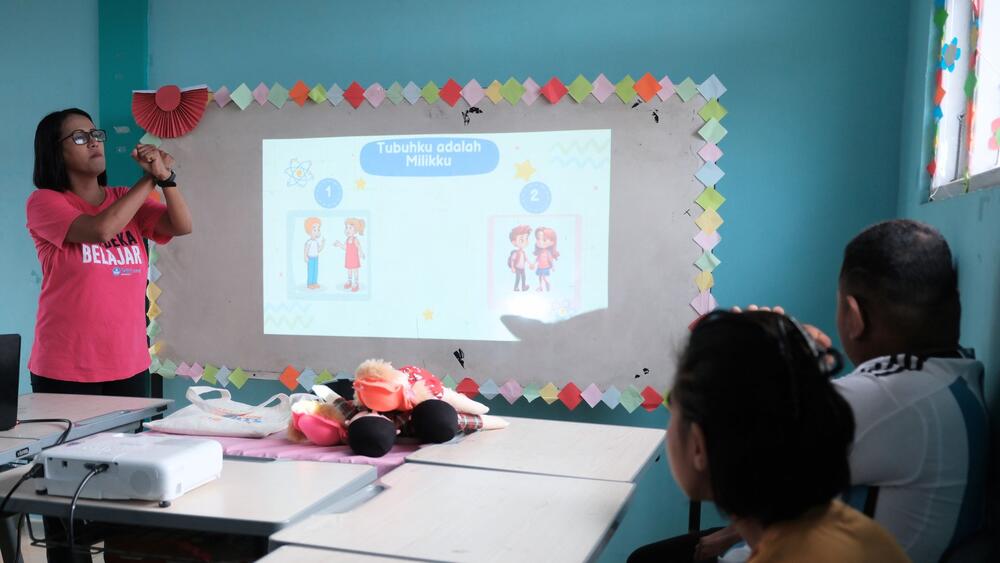
Initially, the perpetrator’s family offered to marry them off, but the girl’s family refused as she was still a child in school. “We fully support the family’s decision. After taking some months off to psychologically recover, we welcome our student again to the school. She has a right to education, like other students,” Yuliana affirmed. The unwavering support from Yuliana to her students exemplifies the critical role teachers play in safeguarding the well-being and futures of those in their care.
This story once again highlights the importance of having adolescent reproductive health education at school. Young people should understand their rights and boundaries, recognize red flags, and protect themselves from potential harm. Educating adolescents on how to say no and identify alarming situations not only equips them with the confidence to protect their well-being but also ensures they are prepared to make informed decisions about their bodies and futures.
--------------------
Giasinta Livia
Youth Engagement, Digital Health, and Innovation Focal Point, UNFPA Indonesia
Itsnain G. Bagus
Communications Associate, UNFPA Indonesia
Magda Sarsevanidze
Intern for Communications Programme, UNFPA Indonesia

